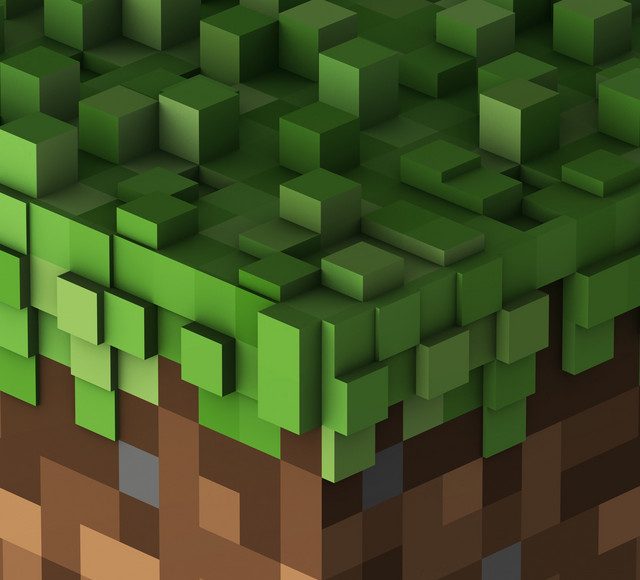Let me paint you a picture. It’s 2013, two years since Minecraft’s official release date. The game has taken the world by storm, beloved by kids and adults alike. Finally, you have succumbed to giving it a try, leading you to log onto a single-player game. You spawn into a green world, trees surrounding you and a mountain far in the distance. Slightly confused, you begin to walk around. Arriving at a tree, you start to punch it until a block pops out. You look in your inventory and see that the wood can now be crafted into other materials. You begin to realize this game is unlike any game you’ve ever played. Done away with the repetitive task lists, tutorials, and concrete gameplay, you know you have the entire creative freedom in your hands. About an hour has gone by, and you begin building a house to protect yourself from what’s to come in the night. Suddenly, a Piano chord sounds strikes the ear, and the track “Minecraft” begins. Arguably, this enhances your experience in a way no other game has replicated previously, making any feeling of mundaneness vanish into relaxation. This, of course, is by design.
Let’s take it back to the beginning. The man responsible for Minecraft’s soundtrack is a German composer by the name of Danial Rosenfield. By the screen name C418, which is a cryptic yet almost meaningless take on his brother’s creative name ‘C818’, he began his music journey from humble beginnings while working at an assembly line in Germany. He would utilize the skills taught by his brother to make music as a hobby, releasing random music to his blog almost every week. At first, he was comically bad at it, doing it for just the pure fun of it. With time, however, he began to focus in on a signature style that he liked, sparking a passion from within. His instrumentals exuded simplicity, minimalism, and ambiance, the perfect combination for video game soundtracks.
By 2009, a Swedish man by the name of Markus “Notch” Persson approached Rosenfield on an online indie development forum called TIG Source; This forum is where C418 would start to get comfortable with English. Notch, building indie games for the pure enjoyment of it, had an idea for something new that he believed C418 could compliment. He asked C418 to produce the music for his latest game, Minecraft, and the rest is history. The unique part about this relationship between the two creators is that Notch allowed Rosenfield to have 100% rights to his music, as he was an indie developer who wasn’t too interested in owning the entirety of the game for monetary reasons.
Rosenfield’s approach to creating the soundtrack was a direct contrast to the gameplay found in Minecraft. In its core concept of sprouted chaos ensuing unpredictable elements of the world, C418 decided to create a calming musicscape for the game. His tracks often portrayed the quality of ‘less is more,’ as a few notes were responsible for producing entire songs. He avoided too much structure and percussive beats, as they were too aligned with what was happening in the game. In 2011, when he released his first studio album, Minecraft: Volume Alpha, it was clear what direction his life would take him after that. He managed to accomplish a solid income from this work with the instant success of the game, which allowed him to rid of his mundane day job and start composing music full-time.
In 2013, he released a follow-up album to his first, Minecraft: Volume Beta. This album contained rejected tracks that would eventually become the sound of the “creative” gamemode, as well as new tracks for different biomes in the game (such as the in-game interpretation of hell, the Nether). He also included a few more dark pieces introducing a sense of fear and diving into new emotional landscapes with his music. Furthermore, some tracks exceeded 10 minutes, including the track “Alpha,” which combined several previous elements of the first soundtrack into a celebrative piece of what the game represented. He experimented with some beats here and there, such as in the track “Aria Math,” a creative mode song that was later remixed by Protostar from Monstercat. This development on his sequel album represented the expansion on his original work, which parallels the game’s development when it was released while progressively improving until the official release.
Since then, C418 has produced soundtracks for several different games, some big and some small. He has maintained the rights to most of his music, which is an applaudable achievement that few can do at his level of popularity. He created three more tracks for Minecraft back in 2018, teasing the release of his final volume in the installment of Minecraft albums. However, Minecraft has since shifted in terms of ownership, with some implied complications with the larger company Microsoft now owning Minecraft. Nonetheless, Minecraft: Volume Alpha still remains a masterpiece to this day, used in many contexts other than the pixelated game. Whether it’s for sleep, study, or leisure, the album has served as a soundtrack that goes beyond the game and into real life. C418’s role in creating Minecraft served as a crucial one, as he enhanced the gaming experience by utilizing music as a medium; thus, C418 cemented the nostalgia for an entire generation of kids continuing the games’ popularity to this day.
If you’d like to find the firsthand experience and motives behind why he made specific songs and projects, you can visit C418.org.



minecraft
Cool cool